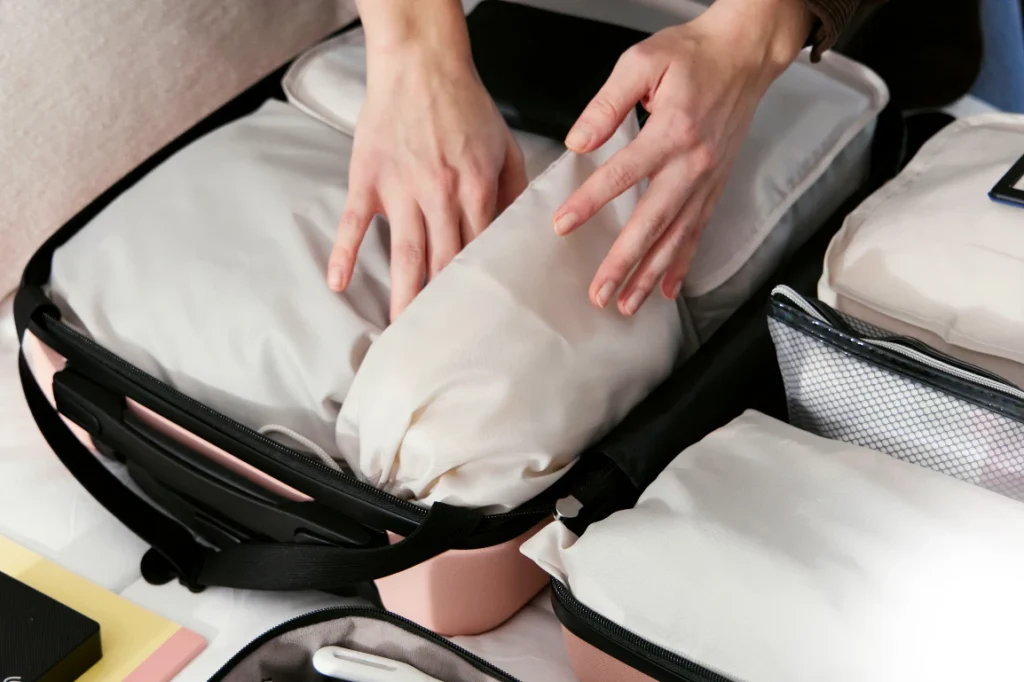Home > Can You Go Abroad with Prescriptions? 2026 Guidelines

Can You Go Abroad with Prescriptions? 2026 Guidelines
If you're traveling abroad long term and take prescription medications, it's important to come up with a plan to ensure that you don't go without.
In this guide, we will take a look at some of the laws and regulations about prescription medications.
We will also talk about what you need to do to prepare for your trip and ensure you have the medication you need - exactly when you need it.
Laws and regulations about medication abroad
Different countries have different policies and regulations about which controlled substances are allowed into their countries and which are not.
According to the CDC, travelers can face serious consequences if they violate the local laws of their destination when it comes to prescription medications.

Are there any medications you can't fly with?
This is going to be dependent on where you are flying. It's important to check with the embassy of your destination to see which medications (prescription or over the counter) are banned from flights or entering the country.
Check your destination's local laws
As mentioned above, the best way to know whether or not you can bring a medication with you when you travel is to check the local laws of your destination. You can typically do this through the embassy of your destination.
All that said, according to Harvard, the following medications are commonly restricted.
- Narcotics and psychotropic medications (this may include Adderall and Ambien)
- OTC (over-the-counter) medications and nutritional supplements (such as protein powder)
- Hormone medications (This may be birth control pills, "morning after" pills, as well as medications for gender transitioning, such as hormonal medications)
- Specific ingredients or specific quantities (This can include things like pseudoephedrine (which is in Sudafed) or diphenhydramine HCI (which is in Benadryl and some nighttime medicines).
Before you go, make sure you check your destination if you are carrying medication, prescribed or not.
In addition to restricted medications, there may be upper limits to which medications you can bring.
For example, a country may allow you to bring prescribed narcotics but limit it to a specific quantity, such as 90 days' worth.
This resource, linked to by the CDC, can be helpful.

How to prepare your medication before you travel abroad
After you've checked whether or not your medications are legally allowed into your destination, it's time to prepare them for your upcoming travels.
Traveling? Don't forget ⬇️
Get long stay travel insurance to protect the journey ahead.
Consult your healthcare professional
It's never a bad idea to consult with your doctor or medical professional before traveling abroad with medication.
They may be able to offer you advice about your destination and traveling with your prescription. It also could make sense to talk to them about dosage times. If you take your prescription at a set time every day that is sensitive to change, you may need to adapt if you're going to a country multiple time zones away.
Additionally, they may be able to prescribe you a larger amount in bulk that will last you for the entirety of your trip.
Your doctor can help you make a plan so that you're taking your medicine safely and effectively.

Research your destination's healthcare system
In the same vein as researching the local laws and regulations of your destination, it doesn't hurt to review the healthcare and availability in your destination as well - especially if you're only able to bring a certain quantity with you and you're staying for an extended period of time.
It may be possible to get your prescription refilled overseas, but it really depends on the prescription, the place, how long you are there, etc. A little research goes a long way!
Pharmacies abroad
Pharmacies differ around the world.
Take France, for example.
In France, pharmacies can be found every few blocks in cities. This is where you get your prescription medication, but it's also where you get your "over the counter" medication. You must ask a pharmacist/attendant for what you need - whether it's Tylenol or your heart medication.
In the States, over-the-counter medications aren't "over the counter" at all. They can be self-accessed and are found in pharmacies, gas stations, and grocery stores in their own dedicated sections and aisles.
As you can see, how you get your medicine can differ greatly.
Get a copy of your prescription
Before traveling, make sure to get a physical (and digital) copy of your prescription. Not the medication itself, but the written prescription by your doctor.
If worse comes to worst and you lose your medication, run out, or something else, this can help you get it refilled as quickly as possible.
Keep a list of all of your medications
Along with your prescriptions, make sure you keep a list of all of the medications you take, the quantities, and the dosages. This should also be kept both on you and digitally.

Keep the original packaging
When flying with medications (even a pain/fever reducer like Advil), make sure you keep the medicine in its original packaging. Many airlines advise this, and it's a good habit to have, just in case.
If your bag gets checked, it will be much easier for security to see what you have if it's still in its bottle/box.
It will also be harder for you to mix up or confuse your meds - which could have some unfortunate consequences.
Pack your medication in your carry-on
Lastly, make sure that you always pack your medication in your carry on or your personal item.
While truly lost checked bags are uncommon when flying, it happens. And more common than that are delays.
It can be a real headache (literally) if you pack your medicines in your checked bag and then, for whatever reason, they take multiple days to arrive.
Avoid the risk altogether and pack all of your medications with you in the cabin to ensure you have them at the moment you need them.
